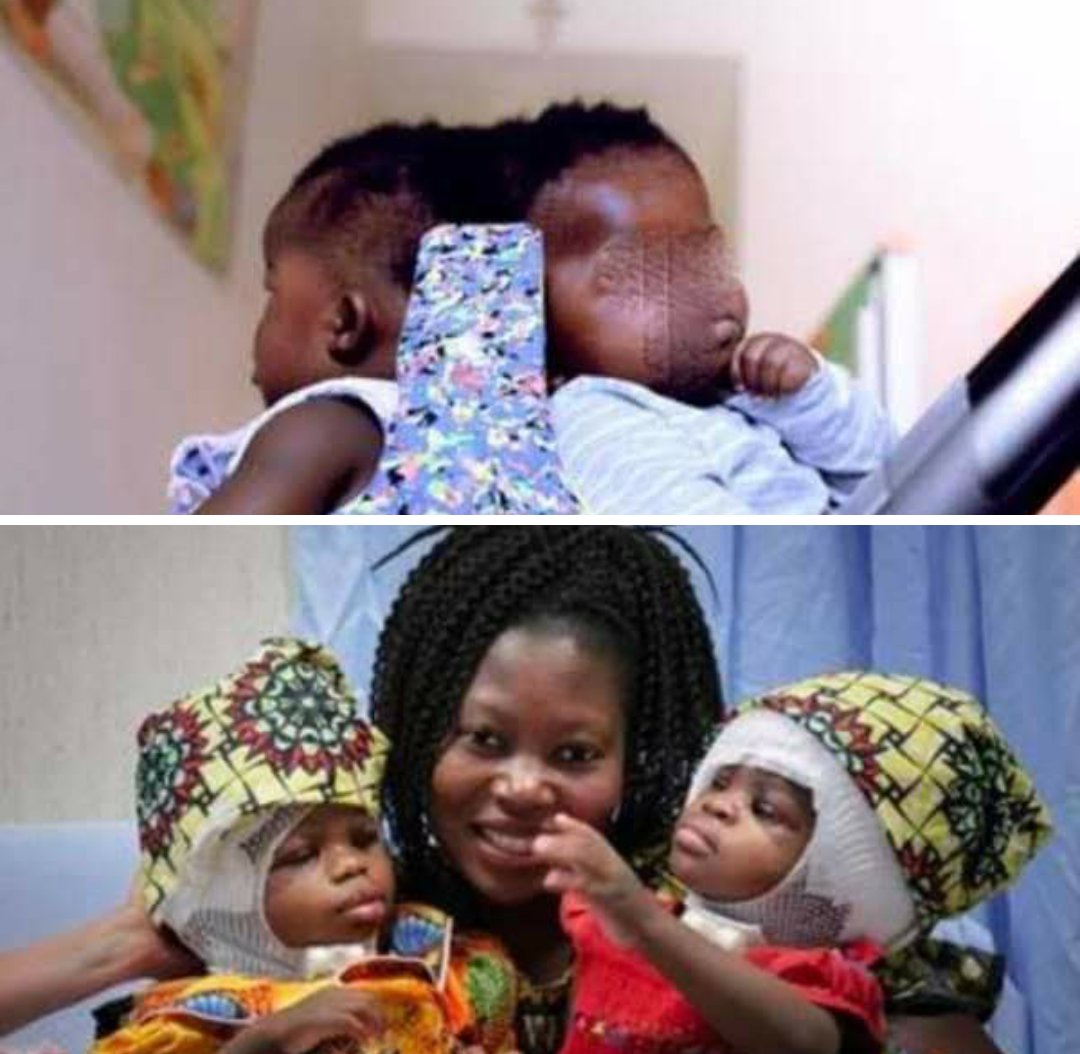
Two-year-old conjoined twins have been successfully separated in what an Italian hospital said was a first-of-its-kind operation.
The twins – Ervina and Prefina – had been joined above the nape of their necks.
They were born with a condition the Ospedale Pediatrico Bambino Gesù in Rome described Tuesday as “one of the rarest and most complex forms of cranial and cerebral fusion,” Agence France-Presse reported.
However, surgeons succeeded in separating the girls and they are doing well.
The hospital — whose name translates to Baby Jesus Pediatric Hospital — said it was the first time in Italy and likely the world that surgeons were able to separate twins who shared the back of their skull and its venous system.
The two sisters were brought to Italy in September 2018 from Bangui, Central African Republic, after the hospital’s president met the babies and their mom where they were born, according to AFP.
Medical tests showed the girls to be generally in good health, but one sister’s heart was working harder to maintain the “physiological balance of the organs of both, including the brain,” the outlet reported.
The twins had “distinct” personalities, with Prefina being vivacious and playful while Ervina was more serious and quietly observing, according to the hospital.
The greatest challenge facing doctors was the shared network of blood vessels bringing blood from the girls’ brains to their hearts, the hospital said. That required “three very delicate operations to progressively reconstruct two independent venous systems,” it added.
On June 5, the twins underwent the final operation, which took 18 hours and included 30 doctors and nurses who worked to divide the bones of the shared skull.
The surgeons then reconstructed the membrane covering the two brains and recreated the skin lining over the girls’ new skulls.
“A month after the final separation, the twins are fine,” said the hospital, which shared a video of a party it threw on June 29 for their second birthday.
In the video, the girls are seen with their heads wrapped in protective bandages as their beaming mum carried them.
The hospital said the girls would have to wear protective helmets for a few months due to the ongoing risk of infection, but their brains were found to be “intact” and they will have the opportunity to “lead a normal life, like all girls of their age”














